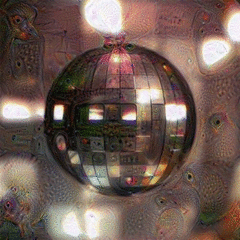-
Posts
96 -
Joined
-
Last visited
Reputation Activity
-

-

-
 miljaker got a reaction from dalekphalm in The GTX 980M also has memory issues...
miljaker got a reaction from dalekphalm in The GTX 980M also has memory issues...
The issue isn't if the ram is enough to run anything you throw at the "1080p" screen. The issue is Nvida thinks it's ok to give false information or not give enough information.
Linus gave a good example on the WAN show. You buy a box of 7 luxury cookies. But when you open the box you see that one of the cookies is only 1/4th of the size of the others. 6 full sized cookies is still plenty for you but you still didn't get what you expected. That's shitty and shouldn't happen.
I'm planning on upgrading to 970 sli soon because it's still a great deal and that slow 0.5gig isn't really needed for me. But that doesn't change the fact Nvidia lied and withheld critical information.
-
 miljaker reacted to Dave_LeBoss in Need help identifying some parts.
miljaker reacted to Dave_LeBoss in Need help identifying some parts.
cpu 3 looks like a pentium 3 or 2. Not sure, released in 1997-ish
And gpu 2 is a ATI mach 64, released back 1994
-
 miljaker reacted to dlf in Nintendo Introduces Dual Analog (for ants) stick New 3DS/XL - Japan exclusive (possibly for now)
miljaker reacted to dlf in Nintendo Introduces Dual Analog (for ants) stick New 3DS/XL - Japan exclusive (possibly for now)
I'd presume it's coming to the west, would be strange to keep it Japan only less it was region free.
-
 miljaker got a reaction from Mindtrickz in 35 minutes of The Witcher 3 Gameplay!
miljaker got a reaction from Mindtrickz in 35 minutes of The Witcher 3 Gameplay!
Pre-ordered it minute one it was available for pre-order. Witcher 2 is my all time favorite game and if it wasn't for the shitty controls of Witcher 1 that one would be up there as well. Can't believe I have to wait till the end of February to play it.
I just hope the whole story isn't about just finding Ciri tho. And damn if there comes a part where I have to pick between Triss and Yennefer just like you had to pick between Shani and Triss in Witcher 1 I might rage and uninstall the game right there and never touch it again.
-
 miljaker reacted to StingBull in Facebook officially owns Oculus now
miljaker reacted to StingBull in Facebook officially owns Oculus now
I was never interested much in VR anyway.
-
 miljaker reacted to beebskadoo in Intel + Mantle = ?
miljaker reacted to beebskadoo in Intel + Mantle = ?
This could offer a really big advantage to lower end laptops or even ultrabooks. I can't wait to see how well it performs!
-
 miljaker got a reaction from atrash in Privacy and the TOR network: why do we need it and how does it work?
miljaker got a reaction from atrash in Privacy and the TOR network: why do we need it and how does it work?
As part of an school assignment I had to write an article related to privacy & security and post it somewhere where people could read it and discus about the topic. So I figured I might as well post it here. I'm not sure if its in the right section so if it gets moved could an admin notify me about it so I can provide the new link to my teacher?
Privacy and the TOR network: why do we need it and how does it work?
I’m sure some of you have heard about the TOR network and what it is. According to Wikipedia, TOR (previously an acronym for The Onion Router) directs Internet traffic through a free, worldwide, volunteer network consisting of more than five thousand relays to conceal a user’s location or usage from anyone conducting network surveillance or traffic analysis.
What exactly is the benefit of using TOR? Why do we need it? And how does it exactly work? Before we can answer these questions we need to know what privacy exactly is and how it affects us.
Privacy
How would you define privacy? Asking this question results in a variety of answers. “The right to be left alone”, “The right to be forgotten”, “The right to decide what information about myself is shared” and “The right to live a life without being spied on”. According to all of these definitions you have NO privacy on the internet. Companies and governments use the internet to collect data about you, make profiles about you and share (sell) this data with other companies.
Most of you probably have a Google account and use some Google service. But most of you probably didn’t read the privacy policy, it wouldn’t even surprise me if NONE of you did. Here is a part of the list of what data Google collects about you:
Information you give Google (name, email, phone numbers, credit cards, birthdays, etc) Information you get from using their services (how you use them, when you use them, the way you interact with them) Device information hardware model operating system unique device identifiers mobile network information (including your phone number) Log information search queries telephone log ( number called, forwarding numbers, time and date of calls, duration of calls, routing information) IP addresses Device information (crashes, system activity, hardware settings, browser type, language, date and time) Cookies that uniquely identify you Location information (GPS, wifi access points, cell towers) You can find the complete list in the Google privacy policy. And this is just what Google collects, combine every website you visit and what information they can collect about you and think about what they can do with that information.
Profiling
Not only facts are stored but assumptions are made as well. Youtube for example has a gender and age account setting. This is not the age and gender they use to target you however. If you watch a lot of Minecraft lets plays it will probably be assumed you are a 12 year old boy. This data will be shared with advertisers and others. They might not know your exact name and address but does that really matter if they can target you based on other identifiers such as your IP address? What if this profiling became a bit more extreme? Watching someone make fireworks on Youtube profiles you with “likes creating explosives”. Imagine if the NSA is doing its usual business and is tapping the line and finds out about this. They might decide to keep a closer eye on you for “public safety”. This already happens to some degree, so what happened to innocent until proven guilty? This data is out of your hands, you don’t know what they have on you, what exactly they do with it and (until recently if you are in Europe) you can’t ask them to delete it.
Privacy is not something we should enjoy having, it is something we require to develop who we are without direct or indirect influences based on assumptions or old data. And in the current state of the internet you pretty much have no privacy.
TOR
This brings us to the TOR network, an anonymous network that keeps your privacy, both as a user and as a service provider. TOR was created to be used in the military, protecting government communications. Today it is used by a much larger userbase. Activists, journalist, law enforcement, military, and even normal people use TOR for its anonymity and security.
TOR protects its users from traffic analysis. Traffic analysis is used to look at who is “talking” to who over the internet. When you visit a website it is logged where the request came from and using that data others can track your behaviour and data previously mentioned. This works because all the data you send whether it’s encrypted or not contains headers with information. These headers contain things like source, destination, time send, size, etc.
The TOR network distributes your transactions over several places on the internet so no one knows exactly where it came from. Imagine walking through the snow from your house to a shoe store to buy some boots. Without TOR you would walk through the snow leaving footprints directly to the shoe store. Others can track exactly where you came from and could show up next year at your door with boots for sale. With the TOR network you would walk through the snow removing your footprints as you go to the supermarket first, then you take a stop at a clothes store, a few more stores and finally arriving at the shoe store. When the shoe store, or someone in the middle who is trying to find your footprints tries to find where you came from they won’t be able to find where you live.
When you connect to the TOR network you obtain a list of TOR nodes. When you make a connection to something a random path through these nodes is created all data between these nodes is encrypted and unreadable to people on those nodes. When the final node is reached the data is decrypted and visible to the server or user looking at it.
Deciding these paths can take quite some time so once a connection is made it stays the same for around 10 minutes before automatically changing and giving you a new “identity”. Try visiting a movie recommendation website with the TOR network. The recommendations will reset every 10 minutes to the default unless you specifically told the website what movies you like. Page visits and the like are meaningless now because they can’t identify who requested those pages.
Hidden services
TOR doesn’t just hide user data, it can also provide hidden services. Let’s be honest, if you heard about the TOR network you have probably heard how it is the place you should be looking if you need a hitman, drugs, money laundering, child pornography and other illegal things. These services exists only on the TOR network because just like users, no one can find their origin. The same goes the other way, the providers of these hidden services are unable to find who visited their website.
These hidden services work a bit different to “normal” services. Hidden services advertise their existence to the TOR network and created circuits to a few random relays and turns them into introduction points with its public key. TOR circuits don’t tell the introduction points (or anyone else) what the servers IP address is so it’s extremely hard to associate an introduction point to a server’s location.
Every hidden service uses a descriptor with the public key and a summary of all the introduction points. This descriptor is then signed with the private key. The descriptor is uploaded to distributed hash table. You can find the descriptor by sending a request to an .onion domain. kpvz7ki2v5agwt35.onion is the “hidden wiki” (a good place to start for anyone visiting the TOR network for the first time). “kpvz7ki2v5agwt35” is a 16 character name derived from the services public key. DuckDuckGo (an anonymous search engine) for example uses “3g2upl4pq6kufc4m”. Using this system everyone can verify if the service is the correct hidden service.
When a client wants to connect to a hidden service he must first know the .onion domain. When the request is send to the domain the descriptor is downloaded and the client knows all the introduction points and the right key that is required. The client also creates another random relay and turns it into a “rendezvous point”.
If everything works correctly the clients sends a message through the introduction points telling the server what the rendezvous point is. Everything still goes through the TOR circuits so no one knows what address the messages are coming from. Both the client and server stay anonymous.
When the server receives this message it connects to the rendezvous point. A message is then send through the rendezvous point telling the client the connection is successful. Encrypted communication is now possible between the server and the client.
There are a total of 6 relays used (unless more are requested) 2 relays are randomly picked by the client and 3 are randomly picked by the server. The last relay is the rendezvous point randomly picked by the client.
Why is TOR used?
The TOR network isn’t perfect. It’s a lot slower than using the “normal internet” because of all the random paths and encryption that’s going on and hidden services usually lack the usability and usefulness “normal services” have. It is filled with disgusting websites that shouldn’t exists and are harming to others (murder, human experiments, child pornography, gore and more). But the TOR network also gives people freedom of speech, anonymity and security.
The TOR network provides a lot of people access to information they otherwise wouldn’t be able to get. Some countries for example block the request for information about birth control, religion, diseases, communism and war. With the TOR network you are able to access this information freely without anyone finding out what you are doing. Reporters and journalists such as reporters without borders use TOR when they are publishing to avoid getting targeted by people who don’t want their information visible to the public.
TOR is not only used to circumvent government and law but is also used to help them by things such as truly anonymous tipping. Whistleblowers and activists use TOR hidden services to publish data without people knowing how to take the information down. Reports about Chinese internet censorship and human rights violation are popular topics.
Using TOR
If you would like to try TOR and see what kind of hidden services there are and what kind of information you can find, you should start off by downloading the TOR browser bundle at https://www.torproject.org/projects/torbrowser.html.en and visiting the hidden wiki. The TOR browser bundle allows you to visit hidden websites and hide your identity from not so hidden websites. There are no other official TOR applications but it is possible to “torify” specific applications. The last link in the sources links to a document that can help you with that.
Keep in mind that just using TOR and hidden services doesn’t keep you completely anonymous. You have to carefully think about what information you are giving to services providers. If you fill in your name and email in a web form people will obviously know who you are. You should also be careful not to download harmful software. Everything that gets stored on your computer might be accessible to others. Keeping your software up to date is one of the most important things you can do. Disable addons and plugins such as Java and Flash because they usually have unpatched security holes. The TOR browser bundle has these things disabled by default but javascript on the other hand is NOT disabled by default. A flaw was recently found that put hidden services and clients at risk of both malware attacks and allowed law enforcement to find the location of hidden services. It might be a good idea to disable it if you want to be completely anonymous.
Conclusion
The TOR network and privacy are two important things in this world and people should become a bit more aware of the current situation. Do you have any experience with the TOR network and hidden services? Do you feel like your privacy is being invaded by companies and governments? Or do you feel like privacy is a thing of the past and simply don’t care what information and assumptions others have on you? I would love to hear your thoughts on this matter.
Sources:
· http://en.wikipedia.org/wiki/Tor_(anonymity_network)
· http://en.wikipedia.org/wiki/Privacy
· http://www.theatlantic.com/technology/archive/2013/02/why-does-privacy-matter-one-scholars-answer/273521/
· http://www.google.com/policies/privacy/
· http://en.wikipedia.org/wiki/Right_to_be_forgotten
· https://www.torproject.org/about/overview.html.en
· https://www.torproject.org/docs/hidden-services.html.en
· https://www.torproject.org/projects/torbrowser.html.en
· http://arstechnica.com/security/2013/08/attackers-wield-firefox-exploit-to-uncloak-anonymous-tor-users/
· https://www.torproject.org/docs/faq.html.en
· https://trac.torproject.org/projects/tor/wiki/doc/TorifyHOWTO
-
 miljaker got a reaction from Nineshadow in Privacy and the TOR network: why do we need it and how does it work?
miljaker got a reaction from Nineshadow in Privacy and the TOR network: why do we need it and how does it work?
As part of an school assignment I had to write an article related to privacy & security and post it somewhere where people could read it and discus about the topic. So I figured I might as well post it here. I'm not sure if its in the right section so if it gets moved could an admin notify me about it so I can provide the new link to my teacher?
Privacy and the TOR network: why do we need it and how does it work?
I’m sure some of you have heard about the TOR network and what it is. According to Wikipedia, TOR (previously an acronym for The Onion Router) directs Internet traffic through a free, worldwide, volunteer network consisting of more than five thousand relays to conceal a user’s location or usage from anyone conducting network surveillance or traffic analysis.
What exactly is the benefit of using TOR? Why do we need it? And how does it exactly work? Before we can answer these questions we need to know what privacy exactly is and how it affects us.
Privacy
How would you define privacy? Asking this question results in a variety of answers. “The right to be left alone”, “The right to be forgotten”, “The right to decide what information about myself is shared” and “The right to live a life without being spied on”. According to all of these definitions you have NO privacy on the internet. Companies and governments use the internet to collect data about you, make profiles about you and share (sell) this data with other companies.
Most of you probably have a Google account and use some Google service. But most of you probably didn’t read the privacy policy, it wouldn’t even surprise me if NONE of you did. Here is a part of the list of what data Google collects about you:
Information you give Google (name, email, phone numbers, credit cards, birthdays, etc) Information you get from using their services (how you use them, when you use them, the way you interact with them) Device information hardware model operating system unique device identifiers mobile network information (including your phone number) Log information search queries telephone log ( number called, forwarding numbers, time and date of calls, duration of calls, routing information) IP addresses Device information (crashes, system activity, hardware settings, browser type, language, date and time) Cookies that uniquely identify you Location information (GPS, wifi access points, cell towers) You can find the complete list in the Google privacy policy. And this is just what Google collects, combine every website you visit and what information they can collect about you and think about what they can do with that information.
Profiling
Not only facts are stored but assumptions are made as well. Youtube for example has a gender and age account setting. This is not the age and gender they use to target you however. If you watch a lot of Minecraft lets plays it will probably be assumed you are a 12 year old boy. This data will be shared with advertisers and others. They might not know your exact name and address but does that really matter if they can target you based on other identifiers such as your IP address? What if this profiling became a bit more extreme? Watching someone make fireworks on Youtube profiles you with “likes creating explosives”. Imagine if the NSA is doing its usual business and is tapping the line and finds out about this. They might decide to keep a closer eye on you for “public safety”. This already happens to some degree, so what happened to innocent until proven guilty? This data is out of your hands, you don’t know what they have on you, what exactly they do with it and (until recently if you are in Europe) you can’t ask them to delete it.
Privacy is not something we should enjoy having, it is something we require to develop who we are without direct or indirect influences based on assumptions or old data. And in the current state of the internet you pretty much have no privacy.
TOR
This brings us to the TOR network, an anonymous network that keeps your privacy, both as a user and as a service provider. TOR was created to be used in the military, protecting government communications. Today it is used by a much larger userbase. Activists, journalist, law enforcement, military, and even normal people use TOR for its anonymity and security.
TOR protects its users from traffic analysis. Traffic analysis is used to look at who is “talking” to who over the internet. When you visit a website it is logged where the request came from and using that data others can track your behaviour and data previously mentioned. This works because all the data you send whether it’s encrypted or not contains headers with information. These headers contain things like source, destination, time send, size, etc.
The TOR network distributes your transactions over several places on the internet so no one knows exactly where it came from. Imagine walking through the snow from your house to a shoe store to buy some boots. Without TOR you would walk through the snow leaving footprints directly to the shoe store. Others can track exactly where you came from and could show up next year at your door with boots for sale. With the TOR network you would walk through the snow removing your footprints as you go to the supermarket first, then you take a stop at a clothes store, a few more stores and finally arriving at the shoe store. When the shoe store, or someone in the middle who is trying to find your footprints tries to find where you came from they won’t be able to find where you live.
When you connect to the TOR network you obtain a list of TOR nodes. When you make a connection to something a random path through these nodes is created all data between these nodes is encrypted and unreadable to people on those nodes. When the final node is reached the data is decrypted and visible to the server or user looking at it.
Deciding these paths can take quite some time so once a connection is made it stays the same for around 10 minutes before automatically changing and giving you a new “identity”. Try visiting a movie recommendation website with the TOR network. The recommendations will reset every 10 minutes to the default unless you specifically told the website what movies you like. Page visits and the like are meaningless now because they can’t identify who requested those pages.
Hidden services
TOR doesn’t just hide user data, it can also provide hidden services. Let’s be honest, if you heard about the TOR network you have probably heard how it is the place you should be looking if you need a hitman, drugs, money laundering, child pornography and other illegal things. These services exists only on the TOR network because just like users, no one can find their origin. The same goes the other way, the providers of these hidden services are unable to find who visited their website.
These hidden services work a bit different to “normal” services. Hidden services advertise their existence to the TOR network and created circuits to a few random relays and turns them into introduction points with its public key. TOR circuits don’t tell the introduction points (or anyone else) what the servers IP address is so it’s extremely hard to associate an introduction point to a server’s location.
Every hidden service uses a descriptor with the public key and a summary of all the introduction points. This descriptor is then signed with the private key. The descriptor is uploaded to distributed hash table. You can find the descriptor by sending a request to an .onion domain. kpvz7ki2v5agwt35.onion is the “hidden wiki” (a good place to start for anyone visiting the TOR network for the first time). “kpvz7ki2v5agwt35” is a 16 character name derived from the services public key. DuckDuckGo (an anonymous search engine) for example uses “3g2upl4pq6kufc4m”. Using this system everyone can verify if the service is the correct hidden service.
When a client wants to connect to a hidden service he must first know the .onion domain. When the request is send to the domain the descriptor is downloaded and the client knows all the introduction points and the right key that is required. The client also creates another random relay and turns it into a “rendezvous point”.
If everything works correctly the clients sends a message through the introduction points telling the server what the rendezvous point is. Everything still goes through the TOR circuits so no one knows what address the messages are coming from. Both the client and server stay anonymous.
When the server receives this message it connects to the rendezvous point. A message is then send through the rendezvous point telling the client the connection is successful. Encrypted communication is now possible between the server and the client.
There are a total of 6 relays used (unless more are requested) 2 relays are randomly picked by the client and 3 are randomly picked by the server. The last relay is the rendezvous point randomly picked by the client.
Why is TOR used?
The TOR network isn’t perfect. It’s a lot slower than using the “normal internet” because of all the random paths and encryption that’s going on and hidden services usually lack the usability and usefulness “normal services” have. It is filled with disgusting websites that shouldn’t exists and are harming to others (murder, human experiments, child pornography, gore and more). But the TOR network also gives people freedom of speech, anonymity and security.
The TOR network provides a lot of people access to information they otherwise wouldn’t be able to get. Some countries for example block the request for information about birth control, religion, diseases, communism and war. With the TOR network you are able to access this information freely without anyone finding out what you are doing. Reporters and journalists such as reporters without borders use TOR when they are publishing to avoid getting targeted by people who don’t want their information visible to the public.
TOR is not only used to circumvent government and law but is also used to help them by things such as truly anonymous tipping. Whistleblowers and activists use TOR hidden services to publish data without people knowing how to take the information down. Reports about Chinese internet censorship and human rights violation are popular topics.
Using TOR
If you would like to try TOR and see what kind of hidden services there are and what kind of information you can find, you should start off by downloading the TOR browser bundle at https://www.torproject.org/projects/torbrowser.html.en and visiting the hidden wiki. The TOR browser bundle allows you to visit hidden websites and hide your identity from not so hidden websites. There are no other official TOR applications but it is possible to “torify” specific applications. The last link in the sources links to a document that can help you with that.
Keep in mind that just using TOR and hidden services doesn’t keep you completely anonymous. You have to carefully think about what information you are giving to services providers. If you fill in your name and email in a web form people will obviously know who you are. You should also be careful not to download harmful software. Everything that gets stored on your computer might be accessible to others. Keeping your software up to date is one of the most important things you can do. Disable addons and plugins such as Java and Flash because they usually have unpatched security holes. The TOR browser bundle has these things disabled by default but javascript on the other hand is NOT disabled by default. A flaw was recently found that put hidden services and clients at risk of both malware attacks and allowed law enforcement to find the location of hidden services. It might be a good idea to disable it if you want to be completely anonymous.
Conclusion
The TOR network and privacy are two important things in this world and people should become a bit more aware of the current situation. Do you have any experience with the TOR network and hidden services? Do you feel like your privacy is being invaded by companies and governments? Or do you feel like privacy is a thing of the past and simply don’t care what information and assumptions others have on you? I would love to hear your thoughts on this matter.
Sources:
· http://en.wikipedia.org/wiki/Tor_(anonymity_network)
· http://en.wikipedia.org/wiki/Privacy
· http://www.theatlantic.com/technology/archive/2013/02/why-does-privacy-matter-one-scholars-answer/273521/
· http://www.google.com/policies/privacy/
· http://en.wikipedia.org/wiki/Right_to_be_forgotten
· https://www.torproject.org/about/overview.html.en
· https://www.torproject.org/docs/hidden-services.html.en
· https://www.torproject.org/projects/torbrowser.html.en
· http://arstechnica.com/security/2013/08/attackers-wield-firefox-exploit-to-uncloak-anonymous-tor-users/
· https://www.torproject.org/docs/faq.html.en
· https://trac.torproject.org/projects/tor/wiki/doc/TorifyHOWTO
-
 miljaker got a reaction from Askew in Microsoft Releases Source Code Of MS-DOS And Word For Windows
miljaker got a reaction from Askew in Microsoft Releases Source Code Of MS-DOS And Word For Windows
I have that left box with evertyhing in it lying around somewhere.
Actually it might not be exactly the same, very similar tho.
-
 miljaker reacted to AlexGoesHigh in "Google's Project Ara could go on sale next year for $50"
miljaker reacted to AlexGoesHigh in "Google's Project Ara could go on sale next year for $50"
wow i think this project is moving to fast or the (most likely) started working on the concept before google bought moto
-
 miljaker reacted to TopWargamer in DirectX & OpenGL to open up low-level access
miljaker reacted to TopWargamer in DirectX & OpenGL to open up low-level access
Good. We deserve an upgrade.
-
 miljaker got a reaction from Andrew48 in How manny watts does you cumputer need?
miljaker got a reaction from Andrew48 in How manny watts does you cumputer need?
Yup, its around 120W when something interesting is happening in game. (league of legends max settings, v sync on).
-
 miljaker got a reaction from lukeptba in Deep Web is huge and i just found out about it !?
miljaker got a reaction from lukeptba in Deep Web is huge and i just found out about it !?
That movie is youtube vid is so wrong.
The "deep web" is way way smaller then the "surface web" (ridiculous names).
It's also worse in every way except for anonymity.
Everyone who has set foot in there knows this.
-
 miljaker got a reaction from helping in Deep Web is huge and i just found out about it !?
miljaker got a reaction from helping in Deep Web is huge and i just found out about it !?
That movie is youtube vid is so wrong.
The "deep web" is way way smaller then the "surface web" (ridiculous names).
It's also worse in every way except for anonymity.
Everyone who has set foot in there knows this.
-
 miljaker got a reaction from Jogostar in 50BTC.com - 578 coins
miljaker got a reaction from Jogostar in 50BTC.com - 578 coins
Thats like 500000 USD right now?
Obligatory "please send me a gpu".
And it shouldn't take too long.
-
 miljaker got a reaction from EChondo in HTC One Gramohorn for $8000 and $1600
miljaker got a reaction from EChondo in HTC One Gramohorn for $8000 and $1600
5! = 120
https://www.google.com/search?q=5!&oq=5!&aqs=chrome..69i57j0l5.662j0j7&sourceid=chrome&espv=210&es_sm=93&ie=UTF-8
-
 miljaker reacted to JLCitadel in Forget a steering wheel - new Toyota inspired by horses
miljaker reacted to JLCitadel in Forget a steering wheel - new Toyota inspired by horses
This is a valid point, to a serious note though, if I could sit in it, and it covered my entire body, like a POD. I'd buy one if it wasn't super over priced, basically a single person car.
-
 miljaker got a reaction from deguzi in Valve adds new maps, weapon skins to Counter-Strike: Global Offensive
miljaker got a reaction from deguzi in Valve adds new maps, weapon skins to Counter-Strike: Global Offensive
Just because you don't play it anymore doesn't mean others don't play it.
-
 miljaker reacted to Torand in GTA5 profile found in AMD beta drivers
miljaker reacted to Torand in GTA5 profile found in AMD beta drivers
Looks pretty solid evidence. Shows that they have a running PC copy to get drivers sus'd out for their cards.
Still no idea on release date though, hoping for Q1 2014 or the holiday period!
-
 miljaker reacted to Lukiose in XFX radeon R9 280x new design
miljaker reacted to Lukiose in XFX radeon R9 280x new design
Looks like a big rectangular wafer cookie...
No go
-
 miljaker got a reaction from Kuzma in Valve adds new maps, weapon skins to Counter-Strike: Global Offensive
miljaker got a reaction from Kuzma in Valve adds new maps, weapon skins to Counter-Strike: Global Offensive
Just because you don't play it anymore doesn't mean others don't play it.
-
 miljaker got a reaction from Anult in Valve adds new maps, weapon skins to Counter-Strike: Global Offensive
miljaker got a reaction from Anult in Valve adds new maps, weapon skins to Counter-Strike: Global Offensive
Just because you don't play it anymore doesn't mean others don't play it.
-
 miljaker got a reaction from Morpheus in Valve adds new maps, weapon skins to Counter-Strike: Global Offensive
miljaker got a reaction from Morpheus in Valve adds new maps, weapon skins to Counter-Strike: Global Offensive
Just because you don't play it anymore doesn't mean others don't play it.















